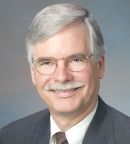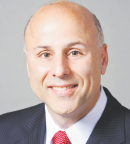Value-based care in oncology—a concept that emphasizes quality over quantity—has evolved over the past 2 decades to become a guiding principle of both public and private payers. The concept was part of the Medicare Improvements for Patients and Providers Act (MIPPA) of 2008; informed elements of the Affordable Care Act of 2010, Medicare’s MACRA program in 2015, the Oncology Care Model in 2016; and most recently, ASCO’s Updated Patient-Centered Oncology Payment (PCOP) model, which will be submitted to the Centers for Medicare and Medicaid Innovation in 2021.
But that’s not all. Along the way, value-based care has inspired new perspectives and questions regarding quality, particularly about what constitutes quality from the patient’s perspective, and how the patient’s perspective and patient-centered care can be incorporated into the clinical implementation of value-based care.
Those questions were the focus of intense and wide-ranging discussion at the annual Patient Advocacy Summit hosted by the National Comprehensive Cancer Network® (NCCN®) in Washington, DC. The meeting, Delivering Value for Patients Across the Oncology Ecosystem, brought together patients, patient advocates, clinicians, and federal policymakers to focus on gaps in perspectives of value and to share approaches for delivering quality-based care that incorporate the patient’s perspective.
Hearing the Patient’s Voice
When Medicare launched its early value-based care payment models, the values referred to were monetary—the quality of clinical outcomes modified by the cost of care. Since then, “there’s been a lot of discussion about value, but the patient’s voice has often been unheard or misunderstood,” said NCCN’s Chief Executive Officer, Robert W. Carlson, MD, as he opened the meeting.

When you give patients a voice, the central concept goes from monetary to patient-centered care.— Robert W. Carlson, MD
Tweet this quote
Now, as patients begin to make their voices heard in discussions of value, there are clear gaps between their perspective on value and Medicare’s clinical perspective. “When you give patients a voice, the central concept goes from monetary to patient-centered care,” Dr. Carlson said in an interview. “And that’s what we heard at the meeting in DC.”
In panel discussions, written materials, presentations, and questions from the floor, advocates made it clear that value-based care should incorporate patient-centered care, which reflects a range of values important to patients. As explained in a statement by panelist Kimberly Bell, BSN, MBA: “The value-based payment models being developed by payers and providers must consider the patient’s perspective on the quality care continuum and finances. As we evolve in this area, this perspective needs to be integrated so patients feel the positive impact on care,” said Ms. Bell, who is the Administrator of Cancer Services at the Cleveland Clinic’s Taussig Cancer Institute.

Kimberly Bell, BSN, MBA

Brian Connell
Some of the important components of patient-centered care, participants said, are shared decision-making, attention to financial toxicity, and consideration of logistical issues such as transportation and work disruption. Psychosocial needs are major concerns, including the those of diverse populations such as members of the LGBT community and patients coping with the stigma of sexually transmitted diseases. Many of these issues affect not only the overall patient experience, but also clinical outcomes.
The impact of financial toxicity on patients is a major issue, said speaker Brian Connell, Executive Director, Federal Affairs, Leukemia & Lymphoma Society. He pointed to data showing that 45% of patients with cancer who have costs of more than $2,000 drop out of treatment. Half of the Society’s patient members are not able to access available therapies, added Mr. Connell.
There is often a connection between financial toxicity and psychosocial issues, noted panelist Carla Tardif, Chief Executive Officer of Family Reach, which focuses on patients’ financial issues. Data have shown that about one-third of poor patients cut their medications in half, she said. Many patients, added Ms. Tardiff, also need support for their nonmedical costs, such as child care, transportation, and monthly bills.

Carla Tardif

Darryl Mitteldorf, LCSW
Another theme, recurring frequently in talks and panel discussions, was the importance to patients of open, honest, two-way conversations with providers. This need for communication includes all patients with cancer and may be especially critical for those whose disease is associated with stigma and/or sexual health.
Panelist Darryl Mitteldorf, LCSW, Executive Director of the National LGBT Cancer Project, said in a statement: “LGBT people fear homophobia and fear that heteronormative values will crowd out inclusive consideration of the health-care needs for our communities regarding value-based care.”
Important issues for patients with colorectal cancer are intimacy, fertility preservation, and overall sexuality, said panelist Ronit Yarden, PhD, MHSA, Senior Director of Medical Affairs for the Colorectal Cancer Alliance. Patients need “open and honest conversations about their different options and the impact that their treatment will have on their everyday lives,” she said.

Ronit Yarden, PhD, MHSA

Clifford Goodman, PhD
Panelist Chuck Strand, Chief Executive Officer of Us TOO Prostate Cancer Education & Support, stressed the importance of full and upfront discussion with patients with prostate cancer and their partners about erectile dysfunction and urinary incontinence. These conditions can be major, and sometimes permanent, side effects of surgery and radiation therapy.
‘Heading in the Right Direction’
Incorporating patient perspectives and changing concepts of value into a clinical practice can pose

I tell my residents that they have to be empathetic team leaders in the practice of oncology. It’s so much more than being a knowledgeable physician.— Justin E. Bekelman, MD
Tweet this quote
challenges, noted moderator Clifford Goodman, PhD, Senior Vice President of The Lewin Group. In a one-on-one conversation with keynote speaker Justin E. Bekelman, MD, Dr. Goodman asked: “How able is your cohort of medical care colleagues to accommodate all the changes taking place?” To which Dr. Bekelman replied: “We must learn to change—it is the reality of cancer care today.” Dr. Bekelman is Director of the Penn Center for Cancer Care Innovation at the Abramson Cancer Center of the University of Pennsylvania.
Talks and panel discussions throughout the day suggested that clinical practices, advocacy groups, and government programs are responding to this reality. The NCCN’s summit included sessions not only on patient perspectives, but also on current efforts to overcome clinical hurdles to patient-centered care—programs and tools that show “we are heading in the right direction,” noted Terrell Johnson, MPA, Policy and Advocacy Manager at NCCN.
Focus on Patient-Centered Care
One of the emerging tools to help inform patient-centered care is the use of patient-reported outcomes from clinical trials, which were the topic of the morning’s keynote address by Paul G. Kluetz, MD, Deputy Director of the Oncology Center of Excellence (OCE) at the U.S. Food and Drug Administration (FDA). Dr. Kluetz described the agency’s Project Patient Voice, a pilot program that will provide online access to patient-reported outcomes from cancer clinical trials via a website (see sidebar).
Project Patient Voice is only one way in which the OCE and its patient-focused drug development program look to incorporate patients into cancer drug development.— Paul G. Kluetz, MD
Tweet this quote
“Project Patient Voice is only one way in which the OCE and its patient-focused drug development program look to incorporate patients into cancer drug development,” Dr. Kluetz wrote in an e-mail interview. “In addition to exploring measurement of symptoms and function using patient-reported outcomes and wearable devices, the OCE is also interested in identifying ways to improve the efficiency of clinical trials, facilitate access to investigational agents, advance patient-friendly language for clinical trial terminology, and support methods to bring trials to patients by decentralizing certain aspects of clinical trials.”
In another project focused on patient-centered care, advocates at the LUNGevity Foundation are working to obtain real-world evidence on patient experience directly from patients with lung cancer and caregivers. Speaker Andrea Ferris, Chief Executive Officer of LUNGevity’s Patient-Focused Research Center, said the Center aims to use the real-world evidence from patients and their caregivers to identify unmet needs for programs and services, elucidate needed changes in health-care delivery, and inform drug development and regulatory decision-making.

Andrea Ferris
Another tool that practices are already using is teamwork. At the Cleveland Clinic’s Taussig Cancer Institute, for instance, “everybody on the team is involved, from collecting data to handing out distress questionnaires,” said Ms. Bell. Also valuable, Ms. Bell noted, is a personalized care design for each patient. This plan covers issues such as access, finances, social service support, and one-on-one relationships with the patient’s clinical support team.
Improving Communication With Patients
In the meeting’s afternoon keynote address, Dr. Bekelman stressed the importance of making it easy for patients to communicate with providers. Giving patients the ability to ask questions and receive answers by text has proved a successful tool, he said, and adding an online chat room has made interaction even easier.
“I tell my residents that they have to be empathetic team leaders in the practice of oncology,” Dr. Bekelman said. “It’s so much more than being a knowledgeable physician.” ■
DISCLOSURE: Dr. Carlson, Ms. Bell, Dr. Goodman, Mr. Johnson, Dr. Yarden, and Dr. Kluetz reported no conflicts of interest.Dr. Bekelman has received honoraria from the American Journal of Managed Care, CVS Health, and OptumHealth and has received institutional research funding from Pfizer and the UnitedHealth Group.

